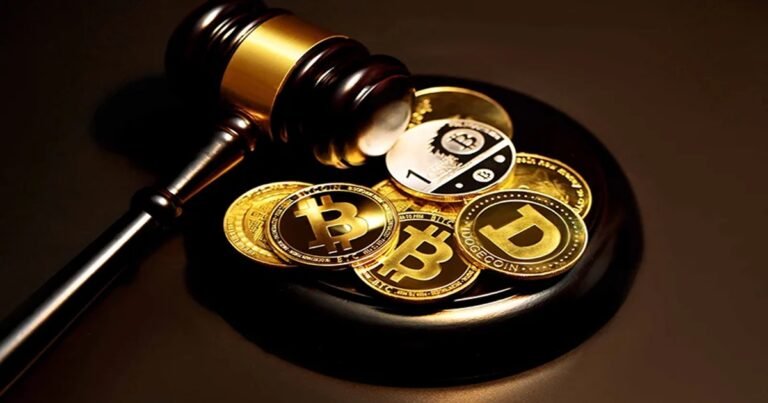Cryptocurrency has taken the financial world by storm, offering decentralized, borderless, and secure transactions. For Muslim investors, a critical question arises—is crypto halal in Islam? This is not just a theological inquiry but also an ethical and practical one, given the growth of the crypto market.
This article dives into the topic, demystifying the concept of halal and haram in relation to crypto, exploring scholarly opinions, and helping Muslim investors make an informed decision.
Table of Contents
What Does Halal Mean in Finance?
To determine whether cryptocurrency is halal, we first need to understand what halal finance entails. Islamic finance is guided by the principles of Shariah law, which forbid:
- Unjust Enrichment (Riba): Any form of usury or interest-charged income is prohibited.
- Excessive Speculation (Gharar): This includes trades or investments with high uncertainty or ambiguous outcomes.
- Haram Goods/Services: Muslims cannot profit from businesses that deal in prohibited activities (e.g., alcohol or gambling).
For an investment or financial activity to be halal, it must align with these principles. This sets the stage to evaluate crypto’s position.
What Is Cryptocurrency and How Does It Work?
Before jumping into its halal status, here’s a quick overview of how cryptocurrency operates:
- Decentralized System: Cryptocurrencies like Bitcoin and Ethereum are powered by blockchain technology, a distributed ledger maintained by a network of nodes.
- Trading/Ownership: Investors can own and trade crypto just as they would traditional assets like stocks or commodities.
- Anonymity and Security: Crypto transactions offer high levels of security and often anonymity.
Given crypto’s decentralized and borderless nature, it poses a unique dilemma when evaluated through the lens of Shariah law.
Opinions from Islamic Scholars on Crypto’s Halal Status
Islamic scholars are divided on whether cryptocurrencies are halal or haram. These opinions stem from how crypto aligns or conflicts with the principles of Islamic finance.
Arguments for Crypto Being Halal:
- Medium of Exchange: Some scholars argue that cryptocurrencies function similarly to fiat currencies as a medium of exchange, making them lawful.
- Blockchain Transparency: Cryptocurrencies operate on transparent systems, reducing fraud and enhancing trust.
- Decentralization: Since crypto eliminates intermediaries like banks and their interest-charged transactions, it aligns with Shariah’s prohibition of riba.
Arguments for Crypto Being Haram:
- Speculation (Gharar): Cryptocurrencies, especially due to volatility, may involve excessive risk, akin to gambling.
- Lack of Tangibility: Critics argue that since crypto lacks intrinsic value or physical backing, it does not meet Islamic finance criteria.
- Anonymity Concerns: The use of crypto in illegal activities or haram industries may blemish it further.
Scholarly Statements:
- Mufti Muhammad Abu Bakar: The renowned Islamic scholar from Blossom Finance issued a fatwa declaring Bitcoin as halal, emphasizing its function as a valid medium of exchange and its decentralized nature.
- UAE Fatwa Council: The regulatory body has declared cryptocurrencies haram, citing their speculative nature and lack of regulation.
A Halal Crypto Checklist
For Muslim investors keen on exploring cryptocurrency, here’s a quick halal checklist to adhere to:
- Purpose of Transaction: Ensure the intention behind your investment or use of crypto aligns with halal objectives.
- Avoid Excessive Speculation: Stick to long-term investments rather than speculative, high-risk trades.
- Research Coins and Projects: Some cryptos may be tied to haram activities, so research thoroughly before investing.
- Seek Fatwa Guidance: Consult a scholar to confirm the Shariah compliance of specific cryptocurrencies.
Popular Cryptocurrencies and Their Halal Assessment
| Cryptocurrency | Halal/Haram | Explanation |
|---|---|---|
| Bitcoin (BTC) | Halal | Decentralized, widely accepted, and functions as a legitimate medium of exchange. |
| Ethereum (ETH) | Neutral | Considered halal if used for projects and purposes aligned with Shariah law but requires vetting. |
| Dogecoin (DOGE) | Haram | Associated with high speculation, making it closer to gambling principles. |
| XRP | Neutral | Utility-focused, but its centralization prompts mixed opinions. |
| Tether (USDT) | Halal | Being a stablecoin linked to USD value, it avoids volatility and speculation. |
Please note that opinions vary, and this table offers a generalized view.
The Future of Halal Crypto Investments
With increasing demand for halal investments, the rise of Shariah-compliant cryptocurrencies is worth noting. Platforms like OneGram (OGC) and Stellar (XLM) design their models to ensure compliance with Islamic principles. Additionally, decentralized finance (DeFi) projects offering halal alternatives to traditional interest-based services are gaining traction.
FAQ on Crypto and Islam
1. Is investing in cryptocurrencies completely halal?
Not always. It depends on the type of cryptocurrency, purpose of investment, and adherence to Shariah guidelines.
2. How can I ensure my crypto activity is halal?
Avoid speculation, invest for legitimate use cases, and support projects that comply with Shariah. Consulting an Islamic scholar is advisable.
3. Are Shariah-compliant cryptocurrencies different from traditional ones?
Yes, these cryptos are designed specifically with Islamic finance principles in mind, avoiding interest and ensuring transparency.
4. Is trading crypto similar to gambling?
Not necessarily, but certain activities like day trading or investing in highly volatile cryptocurrencies may resemble gambling practices, violating Shariah law.
5. Will crypto be more accepted in Islamic finance in the future?
With growing adoption and innovation, efforts are underway to integrate crypto into halal finance more comprehensively.
What Lies Ahead for Muslim Investors
Cryptocurrencies present exciting opportunities, but for Muslim investors, their halal status requires careful scrutiny. Opinions may vary, but with proper research and consultation, engaging with crypto doesn’t have to contradict your faith.
If you’re a Muslim investor intrigued by this financial revolution, start small, focus on ethically robust projects, and stay informed. The world of halal crypto is evolving fast—don’t get left behind.


1 Comment
Zetbet là lựa chọn hàng đầu của mình! Cược thể thao và game bài đều chất lượng cao. Đặc biệt, khuyến mãi chào mừng cực kỳ hời zetbet!